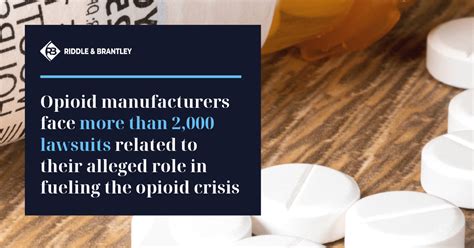—
DEERFIELD, Ill. – The recent lawsuit filed against Walgreens by the U.S. Justice Department has sent shockwaves through the pharmacy giant as serious allegations of misconduct surface. The accusations suggest that for over a decade, Walgreens filled millions of prescriptions without a legitimate purpose, dangerously including opioids in the mix.
Let’s delve into this unfolding narrative to understand the gravity of these claims.
The complaint, lodged in the U.S. District Court for the Northern District of Illinois, paints a troubling picture. It alleges that pharmacists at Walgreens routinely dispensed controlled substances despite glaring red flags indicating potential illegality. Shockingly, it is claimed that these professionals were under systematic pressure to process prescriptions quickly without verifying their authenticity.
According to sources close to the case, authorities assert that Walgreens’ actions violated both federal laws – specifically the Controlled Substances Act – and ethical standards governing healthcare practices. Moreover, it is suggested that the pharmacy chain went as far as seeking reimbursement from federal health care programs for these questionable prescriptions in direct violation of the False Claims Act.
In response to these serious allegations, Walgreens released a statement standing firmly behind its pharmacists’ integrity. The company emphasized its commitment to filling only legitimate prescriptions for FDA-approved medications issued by DEA-licensed prescribers within legal boundaries.
However, amidst this legal firestorm, troubling details emerge suggesting a darker side to Walgreens’ operations. Allegations indicate that crucial evidence pointing towards unlawful activities was allegedly disregarded by the company’s management even when flagged by internal sources and data analysis.
Furthermore, there are claims that vital information sharing among pharmacists was hindered intentionally within Walgreens stores, potentially preventing early detection and intervention in cases involving suspicious prescribing patterns.
Principal Deputy Assistant Attorney General Brian M. Boynton minced no words when he stated his department’s unwavering stance on holding corporate entities accountable for negligent practices. He underscored how lax protocols at Walgreens facilitated the illegal dispersion of millions of opioid pills and other controlled substances over an extended period.
Amidst mounting scrutiny from regulatory authorities and public opinion alike, Walgreens asserts its intention to seek judicial clarity regarding pharmacies’ obligations while defending its stance against what it perceives as arbitrary enforcement efforts lacking statutory backing or formal ratification processes.
As this legal battle unfolds in plain sight with high stakes involved on both sides, industry experts predict ripple effects across not just retail pharmaceutical chains but also wider implications on prescribing norms and professional accountability within healthcare systems at large.
This latest lawsuit against Walgreens forms part of broader governmental efforts aimed at addressing complicity in fueling America’s addiction crisis which has left devastating consequences nationwide with tens of thousands succumbing annually due to opioid-related deaths.




Leave feedback about this